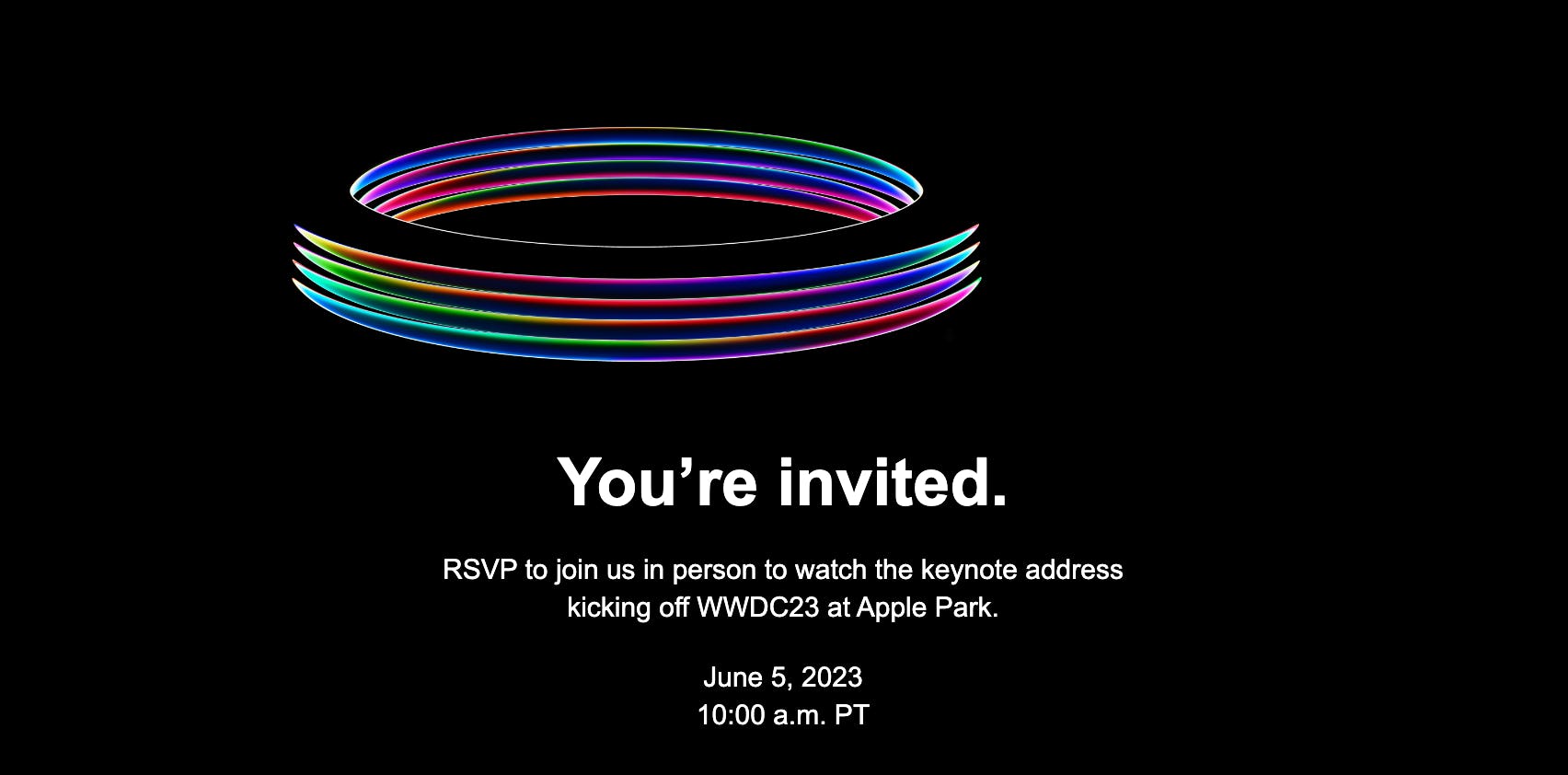
Get ready, because at WWDC 2023 on June 5, Apple might change the world again.
After years of rumors, speculation, and leaks, the tech giant behind the iPhone, iPad, Apple Watch, and Mac is set to announce its mixed reality headset at its annual developer conference. Today, Apple sent the below invite to Inverse and other media.

All eyes are on Apple to deliver a mixed-reality headset with the potential to reshape technology and culture, much like its existing product lineup. At least one person, seems to believe in the Apple mixed reality headset:
Luckey, if you don’t know who he is, was the creator of Oculus and the first modern consumer VR headset, the Oculus Rift. He sold the company to Meta (then Facebook) in 2014 for $2 billion, believing Mark Zuckerberg’s deep pockets was the only way to scale VR. It was both the correct and wrong decision. Since renaming Facebook to Meta — a move to show how committed he was to VR and the metaverse — Zuckerberg has faced strong headwinds in building out the metaverse.
While VR has reached more mainstream adoption under Meta, the company’s VR ambitions have already started shriveling up. Following last fall’s Meta Connect conference, Reality Labs CTO, John Carmack, announced he’d resigned. It’s apparent that he and Zuckerberg did not share the same vision for consumer VR. And sure enough, the Quest Pro flopped, leading to a $500 price cut months after launch.
Can Apple’s headset — expected to be a very high-end one with the very best displays and hand-tracking input — succeed where the Quest has only found moderate popularity?
Apps For The Headset
From the sound of things, Apple is preparing several key apps for the mixed reality headset, including FaceTime which might resemble more face-to-face communication, a large virtual movie screen, and the ability to play games and work.
Apple seems to be optimizing all of its core apps for use in xrOS, the operating system, for the mixed reality headset, according to Bloomberg.
- Apple Books
- Apple TV
- Calendar
- Contacts
- FaceTime
- Files
- Fitness+
- Freeform
- GarageBand
- iMovie
- Keynote
- Maps
- Messaging
- Music
- News
- Notes
- Numbers
- Pages
- Photos
- Reminders
- Stocks
- Weather
Apps not optimized for the headset will still run. Bloomberg’s Mark Gurman says that “millions of existing apps from third-party developers via the new 3D interface.”
What? It’ll Cost $3,000?!
All of the most credible reports claim Apple’s mixed reality headset will carry a $3,000 price tag. That makes sense if the technologies inside of the headset really are as advanced as the leaks suggest. It also could be a big fake-out.
Apple has played this game before. Before the original iPad was announced — long before $1,000+ iPads were normalized — rumors suggested the iPad would cost at least $1,000. Steve Jobs even poked fun at the incorrect info.
“If you listen to the pundits, we’re going to price it at under $1,000, which is code for $999,” he said. “When we set out to develop the iPad, we not only had very ambitious technical goals and user interface goals, but we had a very aggressive price goal because we want to put this in the hands of lots of people... I am thrilled to announce to you the iPad pricing starts, not at $999, but at $499.
In a single moment, Jobs shattered the rumors while making the iPad seem like a steal at $499, even though many PC laptops at the time were only a few hundred dollars more. Cook could use a similar strategy to underpromise and overdeliver. I could see a lower price, even at $2,000, eviscerating skeptics.
Meta sells its top-of-the-line Quest Pro for $1,000, which launched at $1,500. Its entry-level Quest 2 starts at $400. Add in an “Apple tax” and it wouldn’t be egregious for Apple’s mixed reality headset to cost at least double the Quest Pro; a $3,000 price would be a huge turnoff for most consumers and go against Jobs’ mission to put Apple products in the hands of many people.







